PS Audio Noise Harvester
| Kill That Noise |
|
|
|
April 2007 |

Anyone who uses a well-designed AC line conditioner can attest to its ability at reducing noise and allowing a system to sound more musical. Personally, I’ve been enjoying the benefits of the Audience Adept Response line conditioner to such a degree that I’ve been off the “which is better” mental carousel for some time and instead have been simply enjoying music much more.
PS Audio has been making some quite exciting line conditioning products over the years, beginning with their highly successful P300 series Power Plants. Now PS Audio has introduced their incredibly affordable PS Audio Noise Harvester. At $99 a pop, these wall warts are perhaps the most affordable AC noise filters available, and by far the least obtrusive. The PS Audio Harvester could also be called the “PS Audio Helpers” because these nifty little buggers were not designed to replace your existing AC conditioner. Rather, they’re designed to work as co-anchors, so to speak. The only requirement is an open receptacle or two (or more).
In the simplest of terms, the PS Audio Harvester, by converting the noise in your electrical system to harmless light, minimizes the workload of your existing AC conditioner. The PS Audio website states: “Here’s the dirty little secret none of our competitors want you to know. ALL power line filters – regardless of design – do not actually eliminate noise from the power line. Instead, they only shift the noise around from one place to another!”
To be honest, when the opportunity came to write about yet another line filtering product, I was not enthusiastic. But fate provided an audition without invitation. Acoustic alchemist David Caplan, co-architect behind the Shakti Hallographs (review in works), who is also a neighbor, decided to drop over for a listening session (and, of course, to play with his latest toys). Caplan keeps a backpack with him wherever he goes with all sorts of nifty audio trinkets, just waiting for an opportunity to slip them into your system. During one of our usual extended listening sessions to determine the optimum setup of his Hallographs, Caplan pulled out a string of PS Audio Harvesters on an inexpensive extension cord and asked, “Would you mind sticking these in to see if they make a difference?” Always of the open-minded camp, I said, “Sure.” The very moment he plugged in this quintet of Noise Harvesters, something very subtle – but significant – occurred.
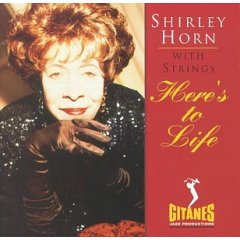 “Somebody turned up the quiet,” was my initial thought. The music took on a blacker and silkier sonic character. In the improved quietness, I could hear little things that were obscured before. Things such as Shirley Horn’s seductive and subtle vocal meanderings on “Summer (Estate)”, from herHere’s To Life CD. Moreover, the quality of this disc, as well as Horn’s textured enunciations, sounded clearer and more well defined on each of the eleven songs on this classic disk. All this from these tiny, blinking AC wall warts? Yeah, I found it hard to believe myself.
“Somebody turned up the quiet,” was my initial thought. The music took on a blacker and silkier sonic character. In the improved quietness, I could hear little things that were obscured before. Things such as Shirley Horn’s seductive and subtle vocal meanderings on “Summer (Estate)”, from herHere’s To Life CD. Moreover, the quality of this disc, as well as Horn’s textured enunciations, sounded clearer and more well defined on each of the eleven songs on this classic disk. All this from these tiny, blinking AC wall warts? Yeah, I found it hard to believe myself.
When Caplan took them out of circuit and put them back into his knapsack, the sound wasn’t profoundly different but the change was noticeable. Without the Noise Harvesters I felt there was a subtle increase in background noise, and the overall feel of the musical outline was a hair more jagged-edged. Subtle perhaps, but enough to make me get in touch with the folks at PS Audio and order a 5-pack of Harvesters for myself.
When they arrived, I immediately went to my local hardware store and got myself one of those AC power strips and plugged the PS Audio Harvesters into each of its five outlets. I then plugged the power strip into an adjacent wall outlet next to my Adept Response AC conditioner.
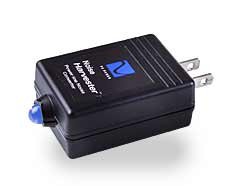
The little lights on the Harvesters blink continually, indicating that noise on the power line is being reduced to harmless light. They are quite busy when I turn on any lights in my listening room: this is, according to PS Audio, because the lights are generating contaminating NOISE. Well, one thing’s certain, when I turn off my lights, whether halogen or standard bulb, the frequency of the lights blinking on the Harvesters slows down significantly. When I turn them back on, the Harvesters light up like the 4th of July.
My first impression of the PS Audio Harvesters during Dave Caplan’s visit was confirmed. Overall, I think the Harvesters quieted the system quite noticeably. This has, in my opinion, a sort of domino effect. Things get noticeably quieter thus the music gains a greater sense of spatial acuity and dimensionality and this, of course, makes music sound more lifelike.
One at a time
To be honest, I couldn’t detect any differences using a single PS Audio Harvester in my system. Two gave a very subtle impression of lowered the noise floor, giving the music a slightly better feel. Three definitely took some hard edges off massed strings, giving them a smoother feel. Four certainly took the sound closer to what I heard with all five installed. It became obvious why PS Audio sells them in 5-packs! Five appears to be the magic number of units for optimal improvement. And at $399.00, I would have to qualify them as a bargain. Because they can be used in parallel using 5,10, 15 or more isn’t crazy nor unheard of and may provide interesting results (though with all those blinking lights your space might closer resemble an airport landing strip).
To sum things up, I think the PS Audio Noise Harvesters are unique in their application, as an aid your existing AC conditioner(s) in removing harmful RFI and EMI. A 5-pack significantly improved the performance of already highly recommended AC products. I am not too bothered by their blinking lights though I know some who were, and actually covered the lights or painted over them. Point is, the Harvesters work as advertised; they made my system sound smoother and rounder without cutting off leading transients which gives a more natural feel to the music. Bass is better improved because it comes across clearer and thus more articulate and soulful. This gives better meaning to the term PRAT: pace, rhythm and timing took another step in the right direction.
The ultimate test is the music and via the Harvesters, the music simply sounded more alive.
If you already own a good AC conditioner, the PS Audio Harvesters may prove perfect because they may show you how much noise actually slips past your beloved conditioner and into your system. I should note that noise is also generated by components themselves. So, using the PS Audio Harvesters at an AC conditioner being shared by several of those components may be another reason why they worked. Bottom line: The PS Audio Harvesters are the real deal and surprised me with their ability to further remove artificial noises in a system that already employs highly recommended AC conditioners.
Don’t get too caught up in all that mumbo jumbo that manufacturers tell you about their products being “perfect” or “incompatible” and do their best work on their own because if that were in fact true, then the Harvesters shouldn’t work? Need I say more?
Clement Perry
___________________
Info: Price $99.95 ea / 5-Pack for $399.00
PS Audio
4826 Sterling Dr.
Boulder, CO 80301
sales@psaudio.com
www.psaudio.com
![]()
Don’t forget to bookmark us! (CTRL-SHFT-D)
Stereo Times Masthead
Publisher/Founder
Clement Perry
Editor
Dave Thomas
Senior Editors
Frank Alles, Mike Girardi, Russell Lichter, Terry London, Moreno Mitchell, Paul Szabady, Bill Wells, Mike Wright, and Stephen Yan,
Current Contributors
David Abramson, Tim Barrall, Dave Allison, Ron Cook, Lewis Dardick, John Hoffman, Dan Secula, Don Shaulis, Greg Simmons, Eric Teh, Greg Voth, Richard Willie, Ed Van Winkle, Rob Dockery, Richard Doran, and Daveed Turek
Site Management Clement Perry
Ad Designer: Martin Perry


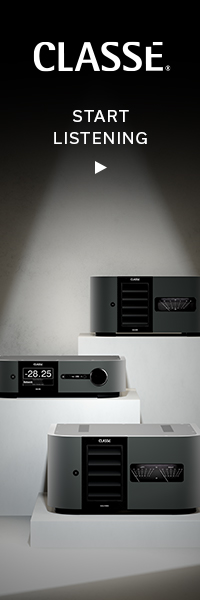
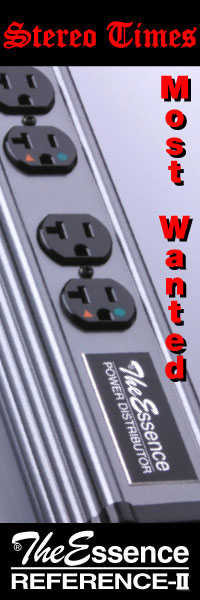
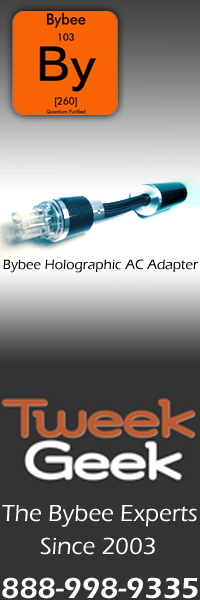
Be the first to comment on: PS Audio Noise Harvester